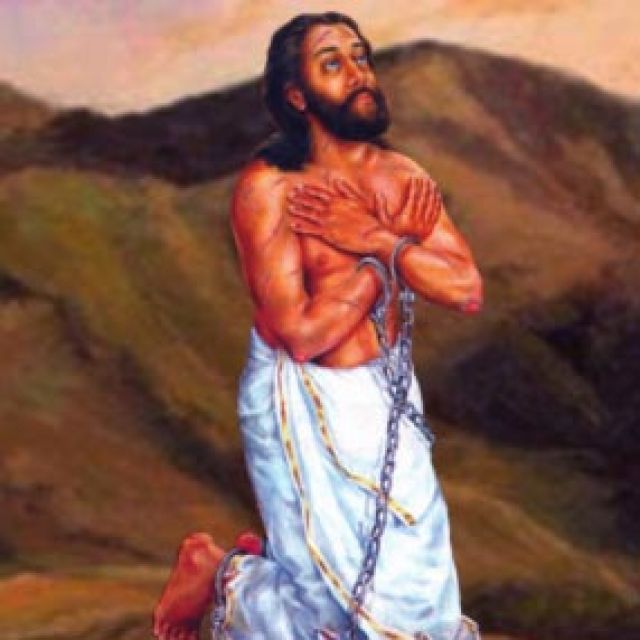"(India) can rejoice as this great martyr is now only a step away from being a declared saint," Bishop Peter Remigius of Kottar told Catholic News Service Dec. 3, a day after 400,000 people attended the beatification ceremony in Nagercoil, in the southern state of Tamil Nadu.
"It was a wonderful event and the people were really excited," the bishop said.
Cardinal Angelo Amato, prefect of the Congregation for the Saints' Causes, presided during the ceremony.
Father Antony Gabriel, vice postulator of the canonization process, described Blessed Pillai as a "true martyr."
Born in an upper-caste family in 1712 and named Neelakandan, Blessed Pillai became a trusted soldier of the Hindu king, but later incurred his wrath for embracing Christianity. While incarcerated, Blessed Pillai shared his woes and frustration with Eustachius Benedictus de Lannoy, a Dutch Catholic military officer who had been imprisoned following the war between the Dutch East India Company and the Indian state of Travancore, Father Gabriel explained.
De Lannoy narrated the biblical story of Job to his prison mate, after which Blessed Pillai began reading the Bible.
When Blessed Pillai approached Catholic officials asking to embrace Christianity, church officials were "hesitant and discouraged him," Father Gabriel said.
"Because he (Pillai) was a royal official, they feared that this might anger the (Hindu) king," he explained.
Blessed Pillai persisted, however, and was baptized in May 1745. He was given the name Devasahayam, a Tamil rendering of the biblical name Lazar, meaning "God has helped." He began preaching and converted his wife and others.
"This made the Brahmins (upper-caste priestly class) angry, and the chief of army also conspired against him," Father Gabriel said.
In 1749, Blessed Pillai was arrested again and was sentenced to death. However, just before he was sent to the gallows, the Hindu king canceled the execution order. Blessed Pillai remained imprisoned for three more years, enduring torture and public beatings and ridicule for refusing to renounce his faith.
"Meanwhile, people had noticed his strong faith and started becoming Christians," Father Gabriel said. "That was why he was secretly taken to a jungle and shot dead."
While his body was thrown into the jungle 11 miles from Nagercoil, Christians later discovered his remains and buried them in front of the altar in St. Francis Xavier Church, which now serves as the Kottar diocesan cathedral.

